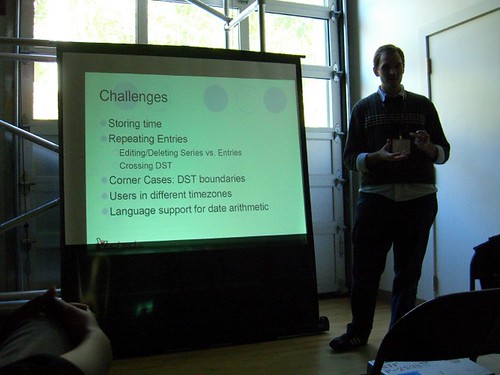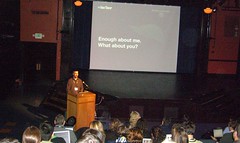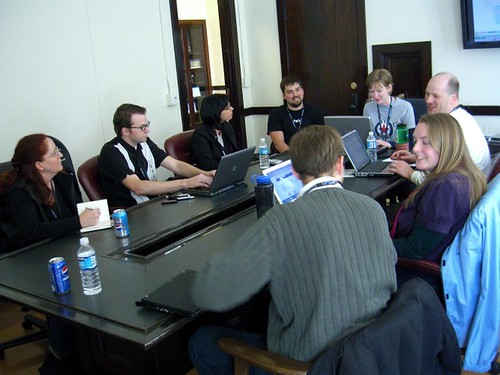I don't know if I have a whole lot to say that I haven't already. You can see all the posts I made from InfoCamp Seattle 2007 by checking out my infocampseattle2007 tag.
The event was great. I met some great people like the keynote speaker, Nick Finck, the plenary speaker, Bob Boiko, some of the organizers, Aaron Louie and Kristen Shuyler, and some innovative librarians, such as Whitney Edwards and Justin Otto.
My second session on short cut access to information was cancelled since there were only about 20 people left by the end of the second day and there were about 4 sessions competing for them. But I did get to attend a session that showed an example where a lot of work got done without enough user research and led to a lot of unanswered questions about how to proceed.
At the end of the day we had "five minute madness" where we all shared a few comments about what we liked, what we didn't like, and what we learned. Nick Finck pointed out what a great ROI we got from this un-conference: the whole thing cost $20 for registration, we got two days worth of breakfast and lunch, tons of sessions, a great keynote and plenary, and we got to meet a lot of smart people from across the information ecosystem. And he's totally right. InfoCamp Seattle 2007 was supported in a big way. From the InfoCamp Seattle 2007 wiki:
- ASIS&T - The American Society for Information Science & Technology
- UW iSchool
- Information Architecture Institute
- Ascentium - interactive marketing and technology
- Blink Interactive - user experience consulting
- Digital Web Magazine - online magazine for web designers, web developers and information architects
- One Economy - a nonprofit organization that brings broadband to the homes of low-income people
- ZAAZ - web design services with technical and creative design
- Ginger Palace Restaurant - sponsor for lunch on Saturday



